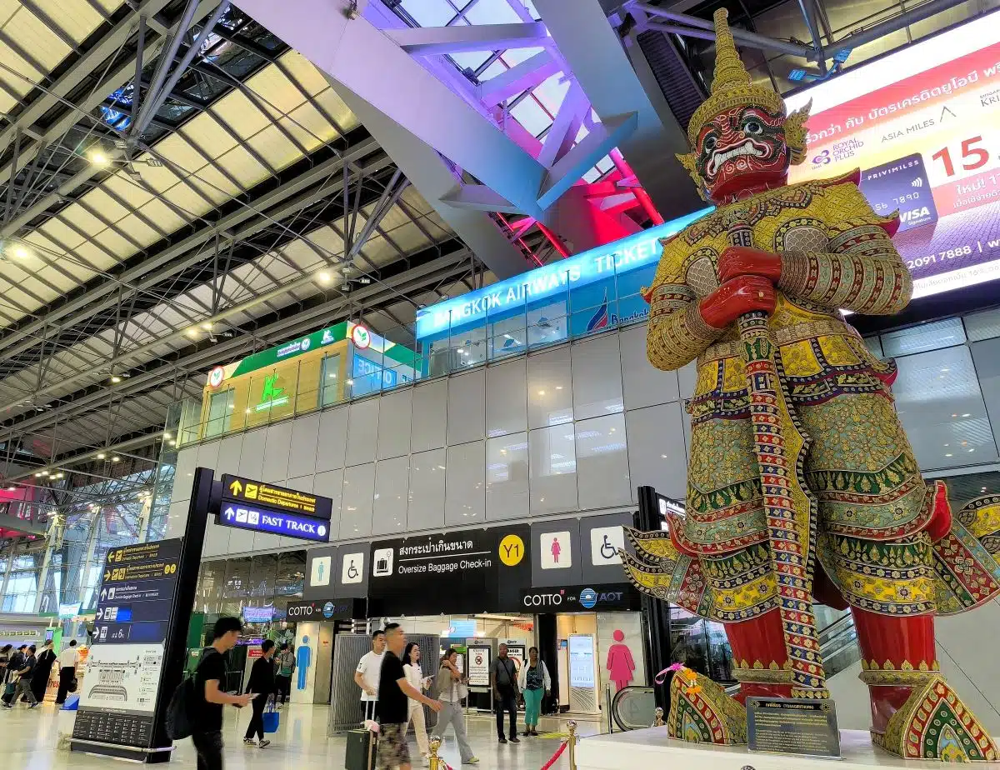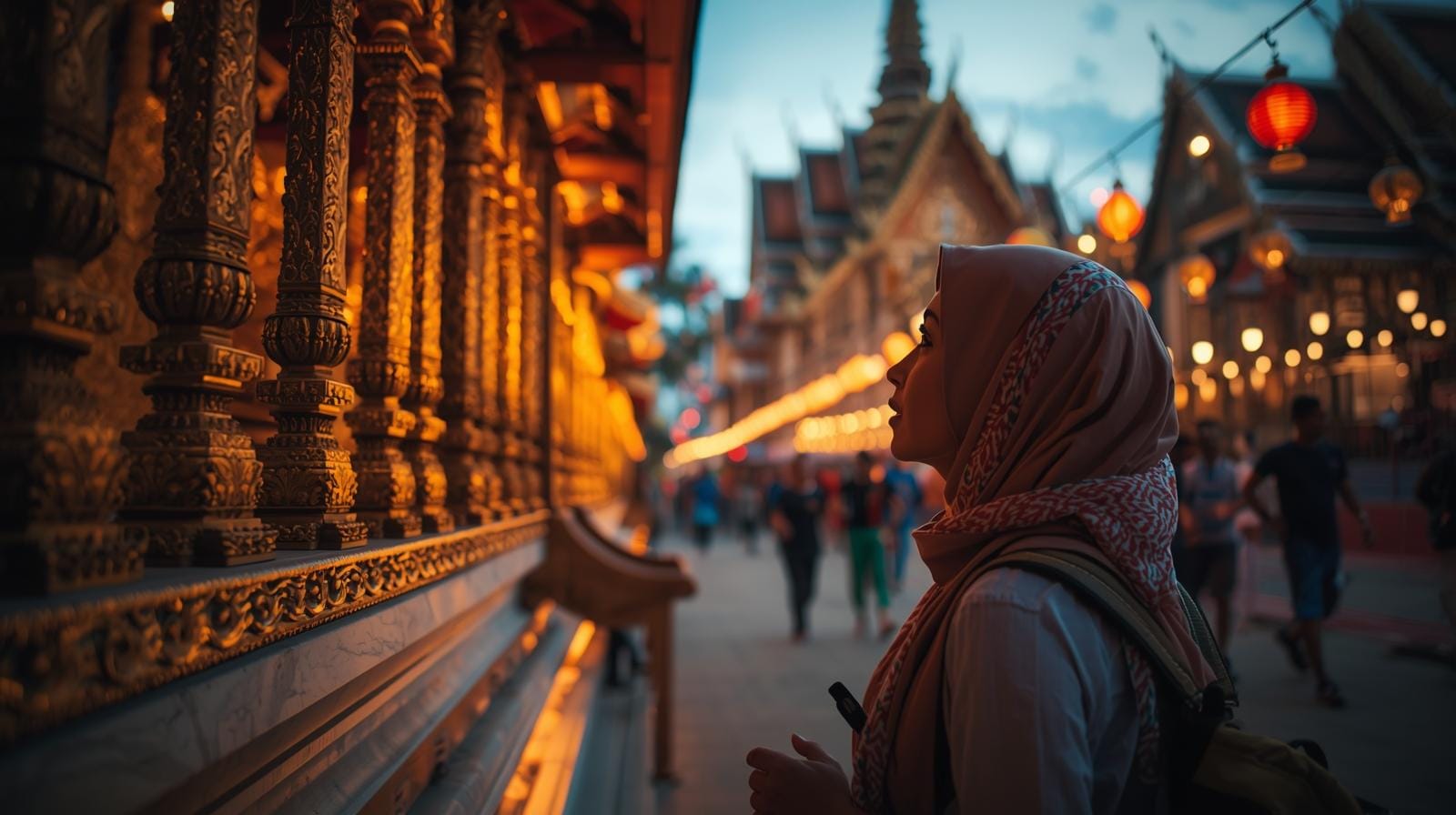Thailand’s government is reevaluating its 2024 policy allowing visa-free tourist stays of up to 60 days, amid mounting evidence of widespread abuse. The 60-day exemption – extended from the previous 30-day rule – was introduced in July 2024 to revive post-pandemic travel and encourage longer visits. Industry analysts note it quickly “boosted arrivals and spending, supporting hotels, restaurants, and local businesses” nationwide. By late 2024, however, authorities began to see unintended consequences. Some foreign visitors treated Thailand as a long-term base, sometimes working remotely or operating businesses without proper permits. These trends have prompted the Ministry of Tourism and Sports and other agencies to urge a formal review.

Internally, officials stress that nothing is changing immediately – the 60-day allowance (with a further 30-day extension possible at immigration) remains in effect. But multiple government sources confirm that a task force meeting on Oct. 22, 2025, chaired by Tourism Minister Atthakorn Sirilatthayakorn, discussed “the impacts” of the visa-free program. The minister warned that some may be “pretending to be digital nomads forever” rather than bona fide tourists. In formal statements, the Ministry framed the agenda as finding “a balance between promoting tourism and enforcing immigration regulations” – keeping Thailand attractive as a destination while shielding local businesses from illegal foreign competition. For now, however, travellers can still enjoy up to 60 days visa-free (plus an extension), and any changes would require cabinet approval via the restored Visa Policy Committee.
Signs of Misuse Trigger Alarm
Officials have identified several red flags. Newspaper reports and industry sources say that some foreign nationals on the 60-day waiver have been engaging in “non-tourism” activities: working online businesses, doing unlicensed guiding or trading, or treating Thailand like a second home. Frequent short-term returns (visa “runs” through neighboring countries) have also raised eyebrows. In interviews, Thai tourism executives complain that longer stays have disproportionately benefited condo rentals, often bypassing the hotel sector, which worries local hoteliers. (Some analysts point out that, overall, longer stays did spread tourist spending more broadly – a potential positive for the economy.)
To illustrate the concerns, Bangkok’s tourism minister quipped that the goal is to keep Thailand “an attractive destination” while telling would-be long-term guests, “we love you, but please stop pretending to be digital nomads forever”. He emphasized that the October review is meant to ensure foreign visitors aren’t violating Thai laws. For example, Ministry of Tourism documents note that the 60-day waiver was intended to give ample leisure time “while still controlling illegal business activities” – and any adjustment would seek to maintain tourist confidence alongside compliance.

Government Review and Possible Rollback
With fresh elections scheduled in early 2026, the interim administration is working fast. The Foreign Affairs Ministry has already proposed re-establishing the inter-agency Visa Policy Committee to vet any amendments. Officials say the review is “urgent” and should wrap up by year’s end, likely in time to propose new regulations well before 2026’s peak season. A leading draft option reportedly being considered is simply restoring the previous 30-day visa-free limit for all eligible nationalities.
This would mirror approaches taken by other regional destinations. A recent visa tracker article noted that Thailand “is reviewing its 60-day visa-free policy amid misuse concerns, considering a possible return to 30-day stays”. Tourism ministry data reportedly under study show that while popular markets like India and Russia filled slots, a small share of travellers overstayed or engaged in unauthorized activities. Some embassy advisories now caution prospective visitors to double-check visa requirements, reflecting the uncertainty.
Notably, industry reactions are mixed. Hotel groups warn that a cutback could slow the recovery of high-spending segments; developers say longer-term travellers have helped real estate rentals. Others counter that a stricter limit would “build tourist confidence” by ensuring a level playing field for Thai businesses. One Bangkok economist notes that while a 30-day rule might slightly reduce visitor numbers, it could attract a steadier class of overnight tourists who fill hotel rooms, rather than low-budget "airbnb resets."

Balancing Tourism Growth and Regulation
Looking ahead, analysts expect a compromise. Even if the visa-free stay is shortened, most observers believe Bangkok will continue to offer some form of visa exemption or easy-entry scheme for leisure travellers. The Tourism Authority of Thailand has stressed that any change is meant to “keep tourists’ time to explore” while curbing abuses. In the meantime, industry officials urge clarity. “Don’t panic yet,” one travel advisor commented, noting that nothing changes immediately. But many are bracing for a switch next year.
For Thailand’s broader tourism strategy, the debate underscores a key tension: sustaining growth versus enforcing the rules. If the government pulls back to 30 days, it may cool down segments like luxury long-stay tourists, but it could reassure embattled hoteliers and ground tour operators. In any case, the episode has already helped drive interest in new visa innovations – from a five-year “Digital Nomad” visa for entrepreneurs to long-term residence permits. For example, robust air links with India and visa facilitation had already driven record Indian tourist arrivals in 2024 (2.1 million), and many analysts point out that these numbers might have been even higher without regulatory concerns.

As things stand, policymakers insist the review is meant to "fine-tune" the system, not to “pull the plug” on visa-free travel. If a shorter stay is imposed, it would likely take effect in 2026. In the meantime, travellers and businesses will be watching closely. For now, the 60-day rule survives as a symbol of Thailand’s open-arms policy – albeit an increasingly guarded one.
Read Next: Thailand’s Visa Overhaul 2025: 17 Categories Down to 7 — What Really Changes for Expats (A guide to Thailand’s recent visa reforms).
Meet Breeze — the easiest way to stay online in Thailand.
No plastic SIMs. No queues. Just instant data when you land.
Skip the airport SIM hunt. With Breeze eSIM, you’re connected the moment you arrive. Choose your plan, scan your QR, and enjoy fast data across Thailand — prepaid, secure, and hassle-free.
Travel smarter. Stay connected with Breeze.











